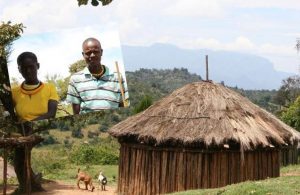Iglesias y Minerías and Repam are two basic ecclesial realities with an eco-theological and ecumenical spirituality which has brought changes for both the society and the Church in Latin America.
Vidalina has interrupted her work for a few days at the basic ecclesial communities in El Salvador to travel to Colombia. The coal mines in the Cesar region are patrolled by paramilitary formations and they have a severe impact on the region and threaten the future of the population.
Patricia left the State of Minas Gerais, Brazil, to reach the Department of Tolima, Colombia, a fertile area threatened by a huge gold mine. During her trip, Patricia is accompanied by the sad memory of the Mariana mine disaster. In November 2015, the burst of a dam at a mine in Mariana claimed 19 lives and caused an environmental disaster, as the toxic waste killed flora and fauna. The toxic mud caused a trail of 600km of destruction, devastating entire villages and contaminating the Rio Doce basin, until it reached the Atlantic Ocean.
Vidalina, Patricia and fifty others from different Latin American countries were recently invited to attend the 3rd continental meeting of the Iglesias y Minería network. It is a grassroots network created in order to defend the coordinators of small Christian communities, trade unionists or leaders of social movements who try to defend different territories from the aggression of mining corporations.
Iglesias y Minería, which has acquired its own identity, as well as dialogues with grassroots groups, the Episcopal Conferences and the Pontifical Council for Justice and Peace, in the Vatican. This network is developing a sort of eco-theological spirituality through its mission which has a political impact, and through the increase of gross roots communication that brings social changes.
This network opposes the strategy of many multinational companies from different countries, which try to attract people and even churches to a single development model, inevitably based on the extraction and the looting of natural resources.
At the same time, another Church network is growing in Latin America – the Pan-Amazonian Ecclesial Network (REPAM). It comes as a result of a provocation “from above”, from an idea and a desire of Pope Francis, which was soon put into effect by Card. Hummes, the Brazilian Franciscan friar and friend of the Pontiff, is aggregating many “grassroots” pastoral groups and communities which are deeply committed to the defence of the Amazon forest and its people.
In recent months, this network has been engaged in training, taking as its starting point the prophetic insight of the Encyclical Laudato si’, which is translated for people according to their local contexts. The network is at the service of the Amazon in Bolivia, Peru, Ecuador, Colombia, Venezuela, Guiana, French Guiana, Suriname, Brazil. REPAM wants to be inspired by the wisdom of indigenous people, who teach us to live in full and deep integration with the environment. The network dialogues with them while respecting religious diversity, and at the same time, it tries to find sustainable solutions for the problematic Amazon urban world . REPAM is also committed to the formation of local leaders for the defence and promotion of human rights and it works at international level with the Inter-American Commission on Human Rights, an autonomous organ of the Organization of American States (OAS), which is entitled to formally consult those countries that violate rights and conventions.
The new face of a “Church over the Internet” is gradually appearing. A new reality, which may amaze the ordinary structures of organization and which perhaps could even open a breach in the rigid hierarchy and the geographical boundaries of the parish and diocesan administration. The Church is called to act with greater flexibility and articulation according to the needs of different territories, to inculturate itself according to local realities, and to broaden the narrow horizons of the diocesan vision.
In the ecumenical context of Iglesias y Minería and Repam, the permanent dimension of dialogue is directed across the board and it formally brings the women and men of small communities, religious priests, bishops and pastors together in the same work groups. In this way, a fertile area is created where the grassroots experience constantly interacts with the coordination service, like in a popular synod of thematic work, in defence of life, of the poor and of mother earth.
Vidalina and Patricia may not realise it, but they are building new Church fields.





